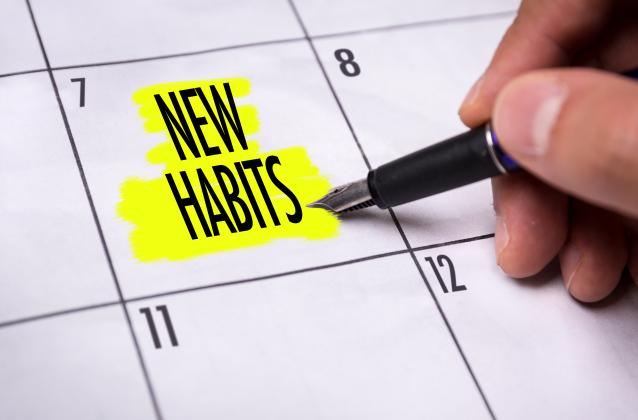“Meat the Future”
By: Jenilee Godsey - Twin Creeks Extension District, Youth Agriculture Agent
I recently read a newsletter from Dr. Tim Elmore entitled “Starting New Habits or Disciplines”. Dr. Elmore is the president of Growing Leaders, which is a nonprofit organization that provides resources that help develop young leaders for school, universities, etc. across the globe. As you can tell, I really enjoy his newsletters and often share them with you. And, his recent newsletter article really stood out to me as a great reminder of what it takes to “start” a habit.
1. Calendars & Priorities
Dr. Elmore says “First, I wholeheartedly bought into Steven Covey’s statement years ago: When it comes to living by our values, the issue is not prioritizing your schedule but rather scheduling your priorities.” He goes on to share that he has practiced a certain method when it comes to his calendar. Dr. Elmore says that long ago he began placing the most important activities and dates in his calendar at the beginning of each year. He says, “If I fail to do this, that calendar will fill up with all kinds of activities that represent someone else’s priorities. For instance, I have a writing day on my calendar every week. If I am traveling on that day, I ask my executive assistant to see about replacing it with another day or two half-days. This is one way I boss my calendar instead of letting it become my boss. I also have a planning time and a thinking block of time in my calendar.”
2. Nudges & New Habits
Each year, Dr. Elmore introduces new habits into his life. He shares that to do this, he will purposely stage the new habit to be formed in close proximity to an old habit that is already a part of his subconscious. This helps to create a “nudge” or reminder of the new habit he is trying to form. Dr. Elmore shares, “For example, when I began a regular habit of reading, I placed a book next to my toothbrush. It served as a daily reminder since I always brush my teeth each day. I am a ‘doer’ by nature, so I am prone to naturally go do something before I would tend to read.” He admits that action-based habits are more natural for his personality than habits that require him to slow down, to be quiet and still. This requires him to pay more attention to this style of new habit.
It is natural for us to react from “nudges”, the chewing gum we purchase is often an impulse buy from its location and proximity at the checkout counter. So, using this mentality to create nudges for ourselves when creating new habits only makes sense.
3. Why?
“Third, I constantly ask myself why I am doing something in order to stay motivated. I check my motives at least once a week,” says Dr. Elmore. He notes that some of the greatest leaders known throughout history often spoke of motives and the importance of being concerned about the “why” of your new habit.
Dr. Elmore shares, “When I ask and answer my ‘why’ questions about my habits, it re-motivates me to keep on keeping on in the right direction.” Many of our new year’s resolutions are lost when the power of urgencies takes over and we have forgotten the why of our new resolution… not because we do not have discipline. Having a why can keep us on track and in focus.
4. Accountability
Accountability can play a role in whether or not a good habit is sustained. This accountability may be provided through someone or something – whatever you deem most appropriate. Dr. Elmore states, “I experimented one year with this reality. I listed two habits I wanted to start in January—both about self-improvement. One was about keeping my blood sugars in a certain window since I am a Type 1 diabetic. The other was about fitness and exercise. I didn’t share the first goal with anyone; I told a close friend about my second goal. It won’t surprise you that I didn’t do as well with the first goal as I did with the other.”
Success is often directly correlated with the accountability we receive when asking respected friends to check-in on our new habits. We dread admitting to failure, so having a conversation about the progress of a new habit seems much more enjoyable when we have a good report!
Dr. Elmore recommends implanting accountability through discussions with a close friend and writing goals down that we can keep in front of us at all times. It’s all about the constant reminder.
I hope that you are able to use Dr. Elmore’s tips to create new and beneficial habits in your life!
Information in this article has been adapted from Dr. Tim Elmore, founder of Growing Leaders.
Jenilee Godsey is a Youth Agriculture Agent for the Twin Creeks Extension District which covers Decatur, Norton, Graham and Sheridan counties. Email her at jenileem@ksu.edu or reach her by telephone at the Graham County Office, (785) 421-3411.

